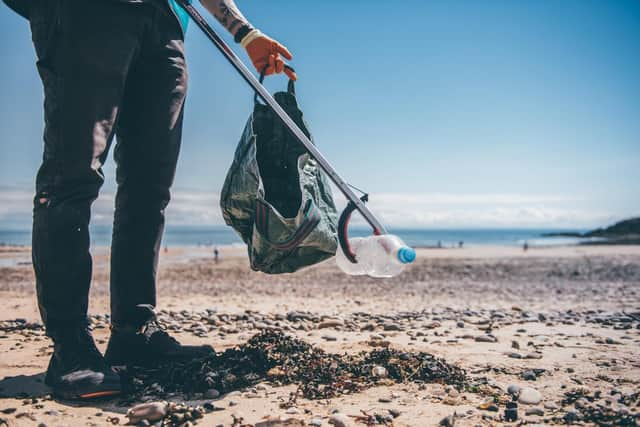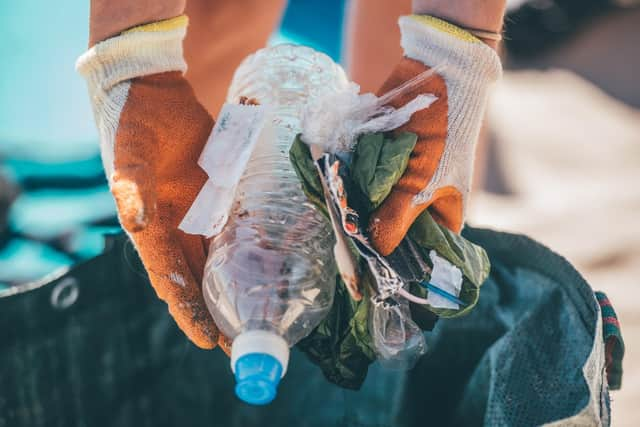Beach litter and sewage debris on Scotland shores sparks renewed calls for action on plastics and disposables
The amount of litter found strewn on Scottish beaches in 2023 was up by 17 per cent on the previous year, surveys have revealed.
Results from Beachwatch clean-ups run by the Marine Conservation Society (MCS) show an average of 188 items were found on every 100m stretch of Scotland’s coastline searched.
Advertisement
Hide AdAdvertisement
Hide AdPlastic and polystyrene cups were recorded in 58 per cent of places.
Single-use plastic drinks bottles, caps and lids and packets were among the top five most commonly discovered items, with metal drinks cans coming in tenth place.
Sanitary waste was seen on nearly three quarters of shores studied.
More than 15,000 wet wipes were collected during the surveys – but this represents a 50 per cent decrease from 2022.


Discarded fishing and aquaculture gear was discovered on 18 per cent of all Scottish beaches examined, but the items made up almost half of all trash picked up in the islands – more than five times higher than the average proportion on mainland beaches.
The largest ever team of litter-picking volunteers turned out last year in the islands – more than double the number who helped out in 2022.
Beachwatch surveys are carried out across the UK and Channel Islands annually, and have been building up a bank of data over the past 30 years.
Volunteers cleared 17,208kgs of litter nationwide in 2023, with analysis showing a 14 per cent rise in the quantity of drinks-related items.


Advertisement
Hide AdAdvertisement
Hide AdInland litter-picks are also carried out, with plastic bottles and lids present at 92 per cent of sites.
Disposable vapes, or e-cigarettes, added to the list of trash counted for the first time.
A total of 940 vapes were found, affecting 42 per cent of areas searched.
The latest results highlight the need for dramatic measures to cut the amount of garbage being dumped in the natural environment, according to Catherine Gemmell, Scotland conservation officer at the MCS.
The charity is campaigning for a deposit return system for drinks containers and pushed for the ban on plastic in single-use wet wipes, which is yet to come into effect.
“Over 3,000 volunteers collected vital data from across Scotland last year, showing the need to cut the amount of single-use plastic we use and curb sewage pollution,” she said.
“Thanks to more volunteers taking part in the islands we now have a clearer idea of the sorts of litter washing up in these areas, which differs from the mainland.
“Data provides us with valuable information that we can use in collaboration with coastal communities, industry and government to reduce the amount of litter turning up on Scottish beaches.”
Comments
Want to join the conversation? Please or to comment on this article.